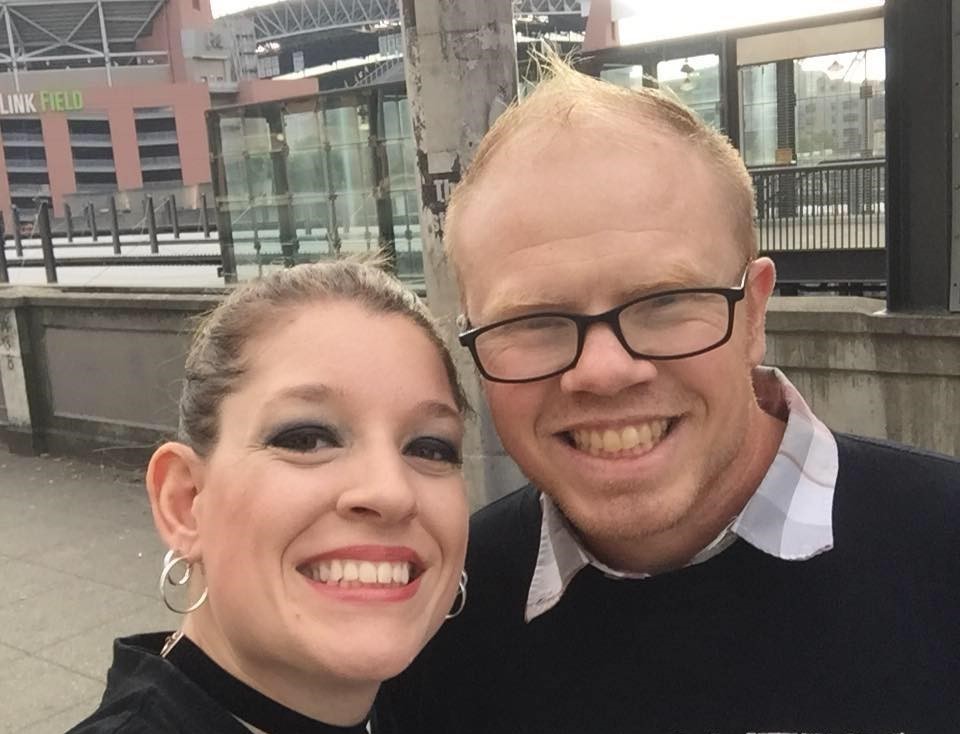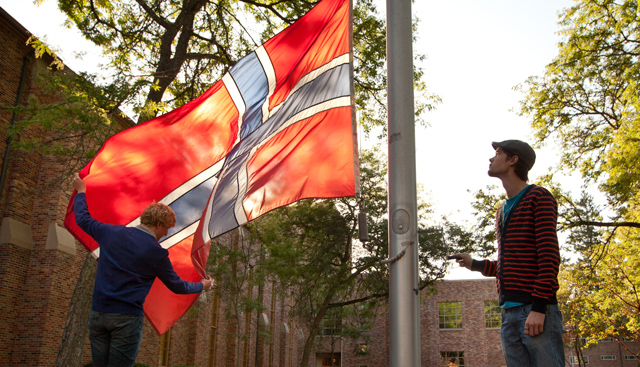Page 93 • (3,855 results in 0.174 seconds)
-

, found real success—and unites at PLU on Oct. 4 as headliners for the Homecoming Fall Festival. You’ll also find: the story behind PLU’s (literally) huge new outdoor campaign, which is spreading the Lute word far and wide, high and low, on more than 100 giant billboards (and on a light-rail Link train) throughout the Puget Sound; exciting new developments at PLU’s Rainier Writing Workshop; details on the prestigious Norwegian art exhibition at the Scandinavian Cultural Center; and a preview of PLU’s
-
. Marit Barkve – Bachelor of Art in Norwegian Language & Global Studies (Social Justice and Development) with a minor in Political Science Why PLU? JooHee Berglund was a brilliant recruiter at a Lutheran college fair in Minneapolis, Minnesota. My PLU experience: Year 1 – Lots of fun, lots of friends, lots of refreshing change. Year 2 – Studied abroad for the year in Hamar, Norway. Year 3 – Lots of academics, Language Capstone (intro to critical literary theory!); RA in Hong. Year 4 – Good combination
-
to be an engaged and active citizen,” Eckstein said. With Eckstein at the helm, the speech and debate team won its first college tournament in more than five years and begun hosting debate camps for high schools. The debate team will continue to grow the program and the popular Ruth Anderson debate series, which brought community members to campus to argue the subject of third-party voting in 2016. Alongside his work in debate, Eckstein continues his own scholarship. He studies alternative
-
that affect individual lives over time and how individuals, in turn, influence the world in which they live. Students of history develop lifelong habits of critical thinking, inquiry-based reading of texts, effective research skills, and appreciation of complexity and diversity in human behavior. History majors also develop the skills needed to work collaboratively, organize and deliver oral presentations on historical subjects, and produce substantial research papers that demonstrate the student’s
-

noticed difficulties that veterans face as they try to navigate through education, housing, medical needs, and legal support. My Wild Hope is to support military veterans in the western Washington community resulting in a stronger overall community. What drew you to the MSMA program here at PLU? Two separate events had great influence on my choice to attend the MSMA program. First, I was attending PLU for my undergrad in chemistry and was working side jobs over the summer. During one of my side jobs
-
everyone who has kept the journal alive and made it what Saxifrage is today. In preparing this edition, we returned to our roots by revisiting the journal’s history, connecting with founders, editors, and contributors, and deepening our appreciation for literary journals. Saxifrage holds a unique place on PLU’s campus; it is run by, and for, students. The pieces that follow represent not only Saxifrage, but the world, at a turning point. Perhaps what follows can be a source of hope, or an indication of
-
best to achieve a diverse, just and sustainable campus. 2010 – PLU 2020 recommends “The university should strengthen and broaden the influence of the pathways to academic distinction on our students’ educational experience, should seek to incorporate the values of diversity, justice and sustainability into the pathways, and prepare periodic reports on the pathways that provide an evaluation of their implementation and success in meeting current needs.”Center for Gender Equity HistoryJ-Term 2020
-

October 12, 2012 Study Away opportunities at PLU take students around the world. (Photo of Greek coast by Markelle Lance) Study away offers students endless opportunities By Katie Scaff ’13 For PLU students like Global Studies and Anthropology double major Hailey Jung ’13, studying away is essential to the college experience. The Billings, Montana native has spent a semester in Norway and j-terms in Neah Bay and Martinique. “You get such a completely different experience than if you were just
-
June 15, 2009 Perspective: Rethinking the global citizen The field of Subaltern Studies came into existence to address a perceived problem with the way that existing scholarly paradigms in anthropology, Latin American studies, and many other fields, had understood the “objects” of study: people in cultures other than those of the scholar. Subaltern Studies sought to engage the subaltern as an ally and participant in the academic process. The communities being studied in this way, at least
-

Berguson, associate professor of Norwegian and Scandinavian area studies, “the responses seemed natural and anything but naïve.” The Scandinavian Cultural Center and the Department of Languages and Literatures sponsored Berguson’s lecture, “My Little Country’: Norway’s Responses to Terror,” on Tuesday, Sept. 19, to honor the lives lost and provide insight into Norwegian responses to the acts of terror. “The summer became more than what any of us had imagined,” she said of the attacks. Berguson was in
Do you have any feedback for us? If so, feel free to use our Feedback Form.


